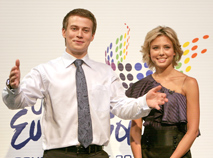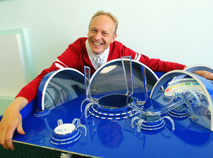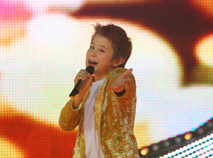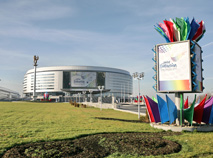Junior Eurovision Song Contest 2010 in Minsk
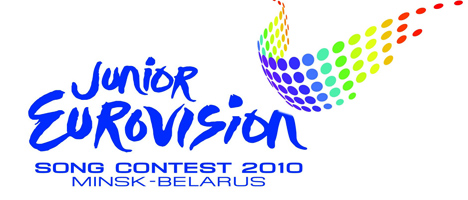
Junior Eurovision 2010 Logo
Representatives from 14 countries aged 10-15 took part in the Junior Eurovision Song Contest 2010 that was held in Minsk on 20 November 2010.
Belarus in Past Junior Eurovision Song Contests
Belarus has been participating in Junior Eurovision since its inception in 2003. The pioneer entry was Volha Satsiuk from the town of Kobrin. She came in 4th. Belarus is the only country to have won the contest twice. The first success came in 2005, when Ksenia Sitnik with her song "My vmeste" won the contest. In 2007 it was Alexey Zhigalkovich to bring the victory to the country. At the Junior Eurovision 2006 Andrey Kunets was second. The Belarusian trio of Dasha, Alina and Karyna with the song "Serdtse Belarusi" represented Belarus at the Junior Eurovision 2008 and took the 6th place. In 2009 Yuriy Demidovich performed the song "Volshebniy krolik" and became the 9th.
Though Ralf Mackenbach’s “Click Clack” song (the Netherlands) was named the best at the Junior Eurovision Song Contest in Kyiv in 2009, Junior Eurovision 2010 was held in Belarus. Unlike in Eurovision for adults where the winning country is entitled to arranging the next year’s show, in junior Eurovision it is the European Broadcasting Union (EBU) that chooses the country for the contest to be held the year after.
In June 2010 EBU officially entrusted Belarus with holding the Junior Eurovision 2010. Belarus’ ideas turned out to be more eloquent and convincing than those of Russia and Malta.
Belarusian Teleradiocompany was entrusted with arranging the Junior Eurovision Song Contest 2010 in Minsk. Deputy Chairman of Belarusian Teleradiocompany Alexander Martynenko was assigned to be the executive producer for the Junior Eurovision 2010.
Junior Eurovision 2010 Contestants
Vladimir Arzumanyan of Armenia became the winner of the Junior Eurovision. His song Mama secured the highest amount of votes from the audience. Russia’s duet by Liza Drozd and Sasha Lazin came in second, just one point behind the winner. Sonja Skoric of Serbia was third and Marian Kakhelishvili finished fourth and Belarus’ Daniil Kozlov placed in 5th.
Young talents aged 10-15 from 14 countries competed at the Junior Eurovision Song Contest 2010. Moldova debuted at Junior Eurovision while Lithuania, Latvia and Sweden re-entered the contest after a lengthy break.
The competitors were Belarus (BTRC), Armenia (AMPTV), Belgium (VRT), Macedonia (MKRTV), Georgia (GEGT), Latvia (LTV), Lithuania (LRT), Malta (PBS), Moldova (TRM), the Netherlands (AVRO), Russia (RTR), Serbia (RTS), Sweden (SVT), and Ukraine (NTU).
The Junior Eurovision Song Contest 2009 gathered young performers from 13 countries in Kyiv.
Belarus’ Entry for the Junior Eurovision 2010
Belarus’ entry Daniil Kozlov with the song "Muzyki svet" (light of music) placed fifth at the Juniour Eurovision Song contest 2010. The thirteen-year old Daniil from the town of Zhabinka, Brest Oblast, was one of the favorites of the European public. .
Belarus’ entry was announced during a live broadcast of the final screening concert from a Belarusian Teleradiocompany studio. The jury and viewers gave the top score of 24 points to Daniil Kozlov’s song "Muzyki svet".
Junior Eurovision 2010 Venue
The Junior Eurovision Song Contest 2010 was held at the sports complex Minsk Arena. The facility was opened on 30 January 2009 and can seat 15,000 people. The Swedish company HD Resources and Belarusian specialists took care of the technical part of the design of the stage and the show. HD Resources representatives said they had been impressed by the magnitude of Minsk Arena. The stage included several wing-like elements and round catwalk stages where performers and hosts were. The “wings” were inspired by the saying that Belarus is a land under white wings.
Hosts of the 2010 Junior Eurovision Song Contest
Leila Ismailova, a student at the Journalism Department of the Belarusian State University, and Denis Kurian, a famous TV presenter and commentator for Eurovision Song contests, hosted the Junior Eurovision 2010. Among other things the hosts were supposed to speak fluent English, to look good for the camera and to improvise a lot.
Junior Eurovision 2010 Faces
Eleven Belarusians were shortlisted by Belarusian Teleradiocompany as Junior Eurovision 2010 “faces” as part of a large-scale promotional campaign for the song contest.
Among the chosen ones were winners of past Junior Eurovision song contests, TV hosts, pop stars, sportsmen, and members of the general public. Their photos were posted on billboards and show boards in streets of Belarusian cities.
Among the “star” faces were TV host Denis Kurian, tennis player, singer and TV hostess Olga Barabanschikova, participants of past Junior Eurovision Song Contests Alexei Zhigalkovich, Ksenia Sitnik, Yuriy Demidovich, Alina Molosh, and Daria Nadina, dancer and TV hostess Irina Kazantseva and actor Andrei Bibikov. Yulia Brazhinskaya, 16, and Ilya Ilmovsky, 19, were selected out of a huge list of regular citizens.
Winners of the audition took part in a rather unusual photo shoot. To create a sense of freedom and flight (the key idea of the show), they had to jump up and down on a real trampoline. Styled as the contest’s log, multicolored wings were attached to their photos later.
Junior Eurovision 2010 Logo and Motto
Airy rainbow wings were the logo for the 2010 Junior Eurovision Song Contest. The wings were viewed as a token of freedom, ease of flying and creative inspiration. Different colors stood for different countries and cultures. The logo was present on special flags, billboards, across-the-street banners and public transport vehicles.
The contest had no motto, as it is not compulsory according to Eurovision rules.
Junior Eurovision symbols were used for the stage decoration, for promotional products, prizes and for decorations across Minsk.
Junior Eurovision Song Contest Broadcasting
Junior Eurovision 2010 was broadcasted by 14 participating countries as well as by national TV companies in other countries, including those in Australia and New Zealand.
Guests at Junior Eurovision 2010
All the winners of the previous contests performed a medley of their songs together. Alexander Rybak, the winner of the Eurovision 2009, was among the guests of honor in Minsk.
Junior Eurovision Song Contest 2010 and UNICEF
The United Nations Children's Fund (UNICEF) was a partner of the Junior Eurovision Song Contest 2010. All revenues from the paid televoting in the participating countries were donated to UNICEF. Organizers of Junior Eurovision 2010 intended to attract attention of the general public to children with special needs. Some of the tickets for rehearsals and the televised show were given away to Belarusian orphans and children with disabilities.



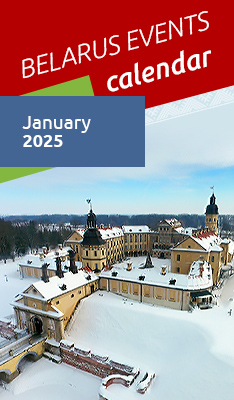




 print version
print version make home page
make home page add to bookmarks
add to bookmarks